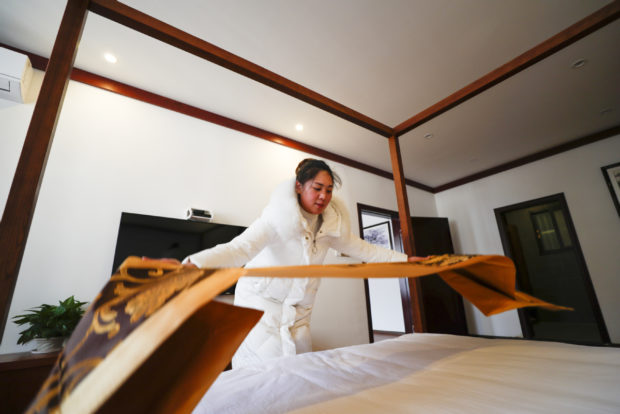BEIJING — The online travel agency platform Qunar.com recorded search volume of its air tickets departing Beijing jump 15 times compared to the previous hour in less than half an hour after it was announced on Wednesday that Beijing will lower its response level of public health emergency from level 1 to level 2 from Thursday 00:00, Securities Daily reported.
According to the daily, people visiting or returning to Beijing from domestic low-risk areas will no longer need 14-day quarantine from April 30. People already in quarantine in Beijing will be allowed to go out soon.
Within one hour after the news was released, the OTA platform of Alibaba saw 500 percent surge from previous day in purchase of air tickets to or out of Beijing, and saw 400 percent increase in train tickets bound for or departing from Beijing.
Statics from Tujia.com, an online homestay platform, showed that in two hours after the news was announced, search and bookings for homestay quadrupled from April 28.
Data of Meituan also showed search volume for scenic spots in Beijing on the afternoon when the news was released grew 2.99 times over the same period last week.
“This reflects people are planning for the coming holiday and they have stronger will for an outing,” said an insider working at Airbnb, “Short-distance, neighboring natural scenic spots and local commercial facilities will first recovery as the epidemic situation is gradually stabilized.”
Data from Qunar.com showed guest house prices in the Labor Day holiday of holiday hotels in hotspot areas have rebounded to the level over the same period last year.
Tujia.com said the average price for a homestay room for the coming holiday has reached 1,200 yuan ($169.60), up around 60 percent year-on-year.
The homestay industry is undergoing an accelerating shuffle caused by the COVID-19. Airbnb said: “The homestay market will employ a more rational method after the epidemic, qualified homestay providers will survive.”
Airbnb added: “The epidemic is temporary but progress of the industry is a long-term issue. As long as there are yarns for good life, tourism industry will certainly recover.”
